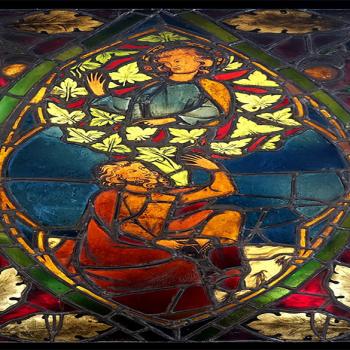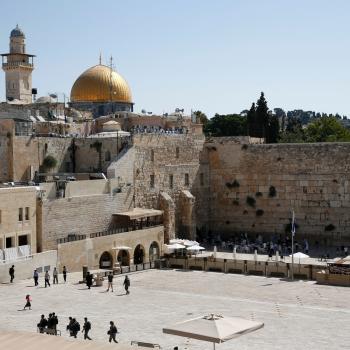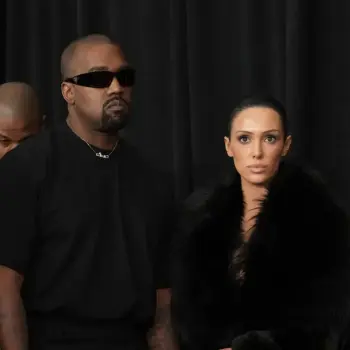Note: This article originally appeared at Killing the Buddha. A version also appears in n+1's Occupy! The OWS-Inspired Gazette Issue 4. Reprinted with permission.
There was a flash of wisdom in Occupy Wall Street's controversial and otherwise unsuccessful attempt to occupy a plot of land owned by Trinity Church on December 17 of last year: if the movement is going to last much longer, it is going to have to occupy, and be supported by, faith. By "faith" I mean religion--the more organized the better. "Hey, church," one could almost hear the Occupiers saying, as they mounted the giant yellow ladder over the fence and dropped down on the other side, "act like a church." And, this being just a month after the eviction from Zuccotti Park, "We need you."
The Occupy movement has been largely a white, urban phenomenon, and one with a bit of a tendency toward vanguardism, which makes it not entirely surprising that it's often blind to the fact that there is no force more potentially revolutionary in U.S. history or in the country today than religion. But the movement remains oblivious to this fact at its own peril. You who are blind, see.
On the other side of the Atlantic, left intellectuals have been starting to discover what they have to learn from religion about revolution. Slavoj Zizek, Alain Badiou, and Giorgio Agamben have all written about the apostle Paul in recent years: he stood at the intersection of Judaism and Christianity and was the architect of an underground movement that eventually subsumed the Roman Empire. During the early days on Liberty Plaza, actually, I felt like I was witnessing a glimpse of how Paul described his early church: the holding of all things in common, a single-minded asceticism, and local cells miraculously spreading throughout the known world. Living in societies far less religious than ours, thinkers on the European left are realizing that the loss of religious imagination can mean losing the capacity to imagine and take steps toward a radically different kind of society.
It's hard to think of anyplace where religion's revolutionary potential has been more fully realized than the United States--both for good and for evil. Many activists nowadays assume the completely non-empirical notion that religion in this country today is a wholly owned subsidiary of the Republican Party. But this impression is the result of a very temporary and partial--if singularly effective--alliance forged at the onset of the Reagan era. This alliance need not last. American religion is nothing if not finicky with regard to politics, and highly troublesome to those in power.
The colonial impulse itself, of course, originated among Puritan congregationalists-utopians who sought to create autonomous communities apart from monarchs. This impulse, further radicalized, gave us the concept of religious liberty and the legal right to free thought. In the decades before independence, anti-imperialist ideas spread through the revivals of the First Great Awakening. Quakers, working in leaderless and consensus-based communities, resisted conscription and oath-taking at the behest of the state; in the mid-19th century, they also led the crusade to abolish slavery. Facing discrimination and lack of access to services, Catholic immigrants created a whole system of parallel schools, hospitals, and charities. The Northeast of the 19th century was dotted with off-the-grid communes and experimental lifestyles, run according to the dictates of various religious and spiritualist sects; it was from these that we get Americanisms from Shaker furniture to Graham Crackers. The insurrectionary and separatist Mormons emerged from this milieu as well, until being driven westward to found their socialist Zion in the desert, which they defended from the feds by force of arms.
These are not the exceptions of American religion; inventiveness, suspicion of authority, and autonomy are really right in the mainstream, however cleverly disguised for the sake of bourgeois decency. Want to see mutual aid? Look no further than the nearest suburban, nondenominational megachurch, where members find free day care, credit unions, employment services, good works for the poor, support in times of crisis, and access to a political machine.
While these political machines have tended of late to be co-opted by the 1 percent, in the past they were engines that helped drive (as well as suppress) the early labor movement, and women's suffrage, together with just about every other political movement with any major impact on American history. And how could it not? About 14 million people belong to labor unions in the United States; closer to 120 million attend religious services regularly. Most of them, at least some of the time, are told in those services to do good, seek justice, and rescue the oppressed. Whether it's on behalf of affordable housing or the unborn, or for an end to AIDS and human trafficking, religion represents an enormous proportion of how people in this country organize.




